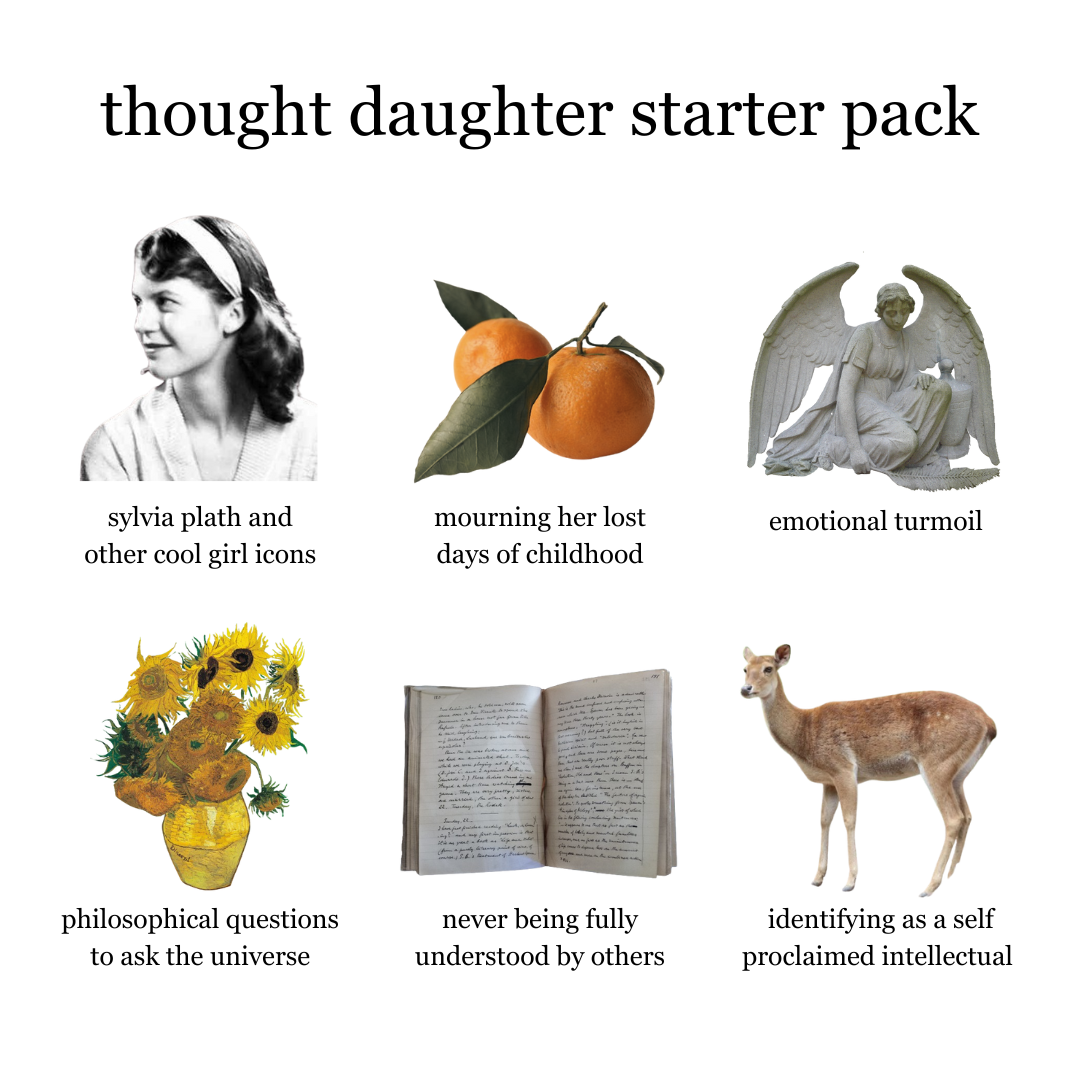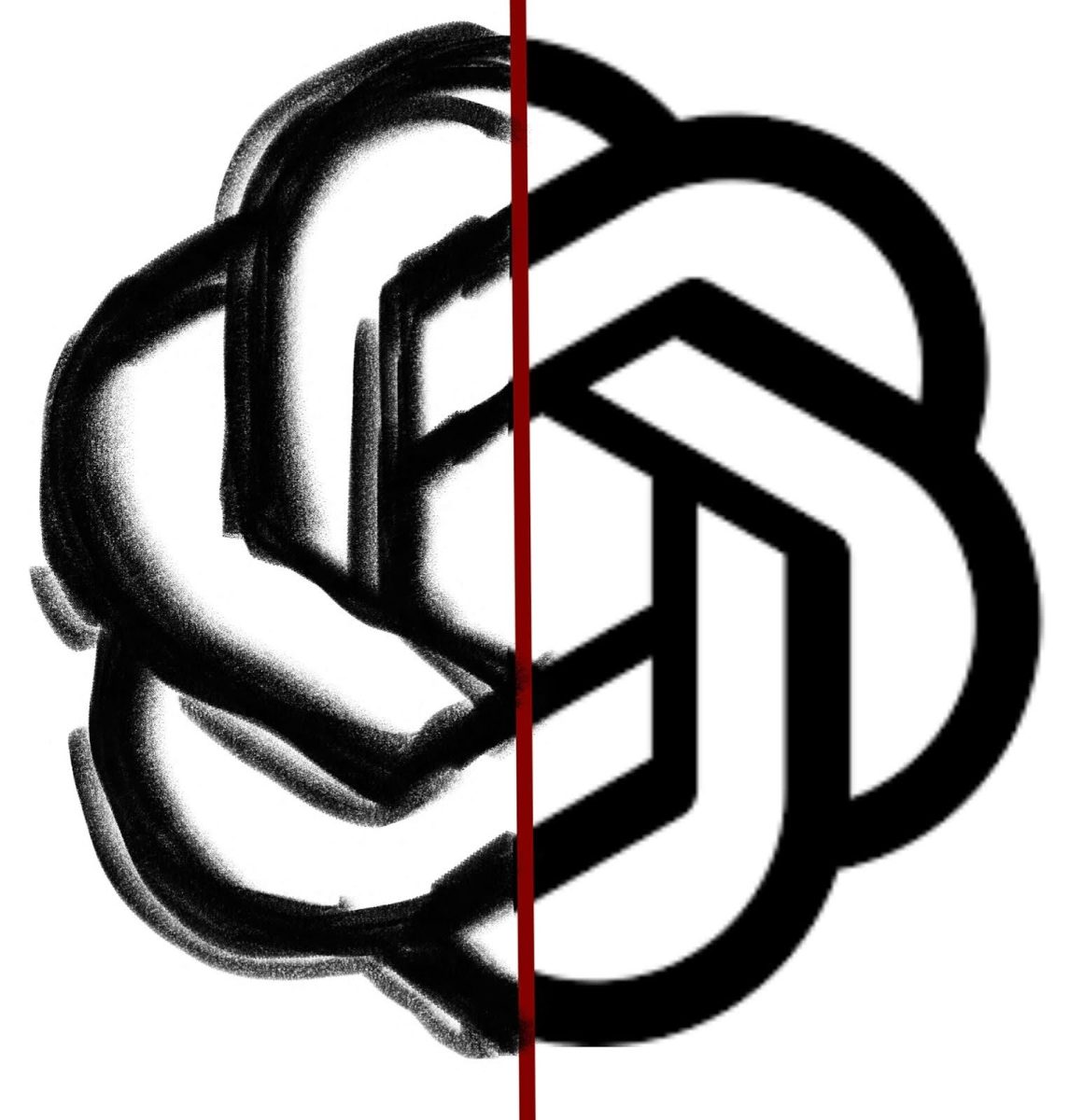Gay son or thot daughter? If you’ve been on the Internet within the last six years, reading the last sentence likely elicited a reaction that can’t be described in words. The rage-bait hypothetical outlines two possible future children: a son who likes boys, or a highly promiscuous daughter. Due to its heavily prejudiced undertones, it is unsurprising people have taken this and remolded it to make it more lighthearted, the most common example being the phenomenon of the “thought daughter.”
The term plays off of the idea that their parents intended to choose a “thot daughter” but chose “thought daughter” instead. The “thought daughter” is an insightful teenage girl who feels deeply and is in turmoil because of it. In many cases, she is defined by the media she indulges in: she reads Sylvia Plath and listens to Fiona Apple. She has a Letterboxd and Substack account and is likely regularly active on both. The “thought daughter” is intelligent, academically and emotionally–being a thought daughter is a pillar to reach for. She is the opposite of what society sees teenage girls as: she is better.
The conversation surrounding the thought daughter eerily reminds me of the NLOG phenomenon of the early to mid-2010s. NLOG stands for “not like other girls” and outlines a comparison between a hyper-femme girl and a “cool girl.” The hyper-femme girl loves pink and goes out to meet guys every night, whereas the cool girl’s favorite color is black and stays in to play video games. The feelings around these posts are mainly animosity–many people have said that the ‘cool girl’ has molded herself to be desirable to men and while putting down other women to make herself seem better. While the thought-daughter phenomenon has less to do with male validation, there are still some critiques to be made.
For one thing, the “thought daughter” falls under the umbrella of aestheticized personalities. This trend has been around for years, the “sad girl” aesthetic being the most akin to the former. Young women have been categorizing themselves into archetypes simply because they are afraid of being seen as a “default girl.” A default girl is represented by the “other girl” in the NLONG meme by the thot daughter. Our culture flattens default girls into one-dimensional beings who live for men, forcing women who want to set themselves apart to box themselves into an easily digestible archetype to do so.
The other primary issue of the “thought daughter” is that she has been framed as the antithesis of the thot daughter–she is more raw and has more depth. It perpetuates the idea that women who have sex are less than, that they are automatically devalued the second they go through the act. People never lose intelligence after intercourse; why do we treat women like they do?
Every daughter is a daughter who’s had thoughts–acting like introspection and intelligence are rare traits in young girls will inevitably do more harm than good in the long term. We shouldn’t have to box ourselves into an archetype to feel valid in our humanity.










